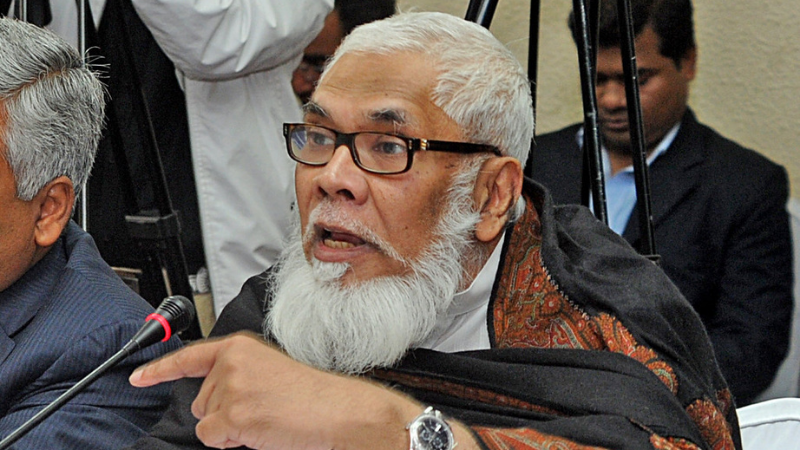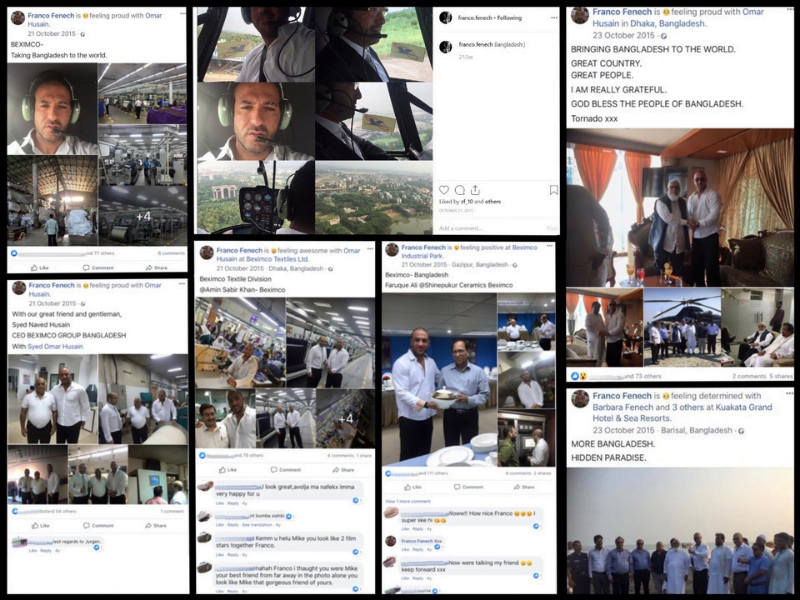Bangladeshi businessman and Cabinet advisor Salman Rahman’s comment to The Shift on his relations with Yorgen Fenech contrast with the contents of Whatsapp chats by the man accused of commissioning Daphne Caruana Galizia’s murder presented in court on Wednesday.
Rahman said his association with Fenech was “brief”, saying they were introduced because Fenech was interested in building a power station in Bangladesh.
“Mr Rahman became aware that a very similar one was being built in Malta and a colleague introduced him to Mr Fenech, as he was responsible for building the Malta power plant together with Siemens and Socar,” he told The Shift through his lawyer.

In December 2020, The Shift published the findings of its investigation done in collaboration with Joseph Allchin, a British-born freelance journalist, writer and analyst formerly based in Dhaka, who has written for the Financial Times, The Economist and The New York Times about Bangladesh.
The investigation revealed how Fenech and his brother Franco travelled to Dhaka, Bangladesh, in October 2015 to meet with Rahman, one of the owners of the Beximco Group, a sprawling conglomerate with interests ranging from pharmaceuticals and energy to media and financial services, and also a trusted advisor to the prime minister of Bangladesh.
The entire visit was chronicled by Franco Fenech on his social media including how the visit “exceeded his expectations”. The visit did eventually lead to a ‘business plan’ and altered Bangladesh’s energy master plan, even if not as the Fenech brothers expected.
On Wednesday, police inspector Kurt Zahra presented WhatsApp chats between Fenech and Rahman during a constitutional court case instituted by Fenech’s legal team over claims that the decision to hold him under arrest for the past two years amounts to arbitrary detention.
In these conversations, Fenech discussed other projects with Rahman besides the ill-fated attempt to export the Electrogas project, including a housing project, according to court reports. Fenech also boasted of his “contact” with disgraced former prime minister Joseph Muscat.
In another chat presented in court, this time with Pierre Portelli, formerly the PN’s Head of Media during Opposition MP Adrian Delia’s time as Party Leader, Fenech referred to Rahman as a “partner”, explaining how he was planning on travelling to Dhaka “tomorrow”, on 27 January 2019.
In January 2019, four years after his first meeting with the Fenech brothers, Rahman was appointed as Bangladeshi Prime Minister Sheikh Hasina’s advisor on private industry and investment, a position equivalent to a minister.
On 17 Black’s trail to Bangladesh

Excerpt from Bangladesh’s Gas Sector Master Plan 2017 published in February 2018. Source: Petrobangla
The Shift’s investigation detailed how the duo’s visit to Dhaka occurred on the back of other attempts by Electrogas consortium partners such as SOCAR to pitch an exportable version of the project to high-ranking delegates from countries like Qatar, Kenya, Namibia and the Ivory Coast.
On 28 February 2018, almost three years after the Fenech brothers’ visit to Dhaka, Bangladesh’s Gas Sector Master Plan for 2017, a project through which the Bangladeshi State was meant to expand its LNG consumption capacities, featured a Memorandum of Understanding signed between two parties which stuck out: Beximco (Rahman’s business group) and Tumas Group.
The investigation also highlighted the extent of the commitment both parties had for the project envisaging an ‘Energy Hub’ in Kutubdia, Cox’s Bazar, in the South East of Bangladesh.

Franco Fenech chronicled the visit to Bangladesh on his social media.
Fenech’s Wing Investments, a sister company to 17 Black – the UAE company meant to pay out €5,000 a day to offshore companies owned by disgraced former government figures Keith Schembri and Konrad Mizzi – forked out €250,000 to pay for consultancy provided by Dutch energy firm Royal Haskoning DHV.
Subsequent media reports linked this company to EN3 Projects and Paul Apap Bologna’s Kittiwake Ltd in relation to “projects in Qatar and Bangladesh”.
The plans drafted by Beximco and Tumas Group bear striking similarities with the local Electrogas model. The project was described as a Floating Storage Regasification Unit, similar to the tanker in Marsaxlokk.
Yet the plans never materialised. Rahman told The Shift that he had commissioned a feasibility report on the project through the same energy firm that had previously provided services to 17 Black and that the project had been discarded following the report’s negative assessment.
Read the investigation here.














